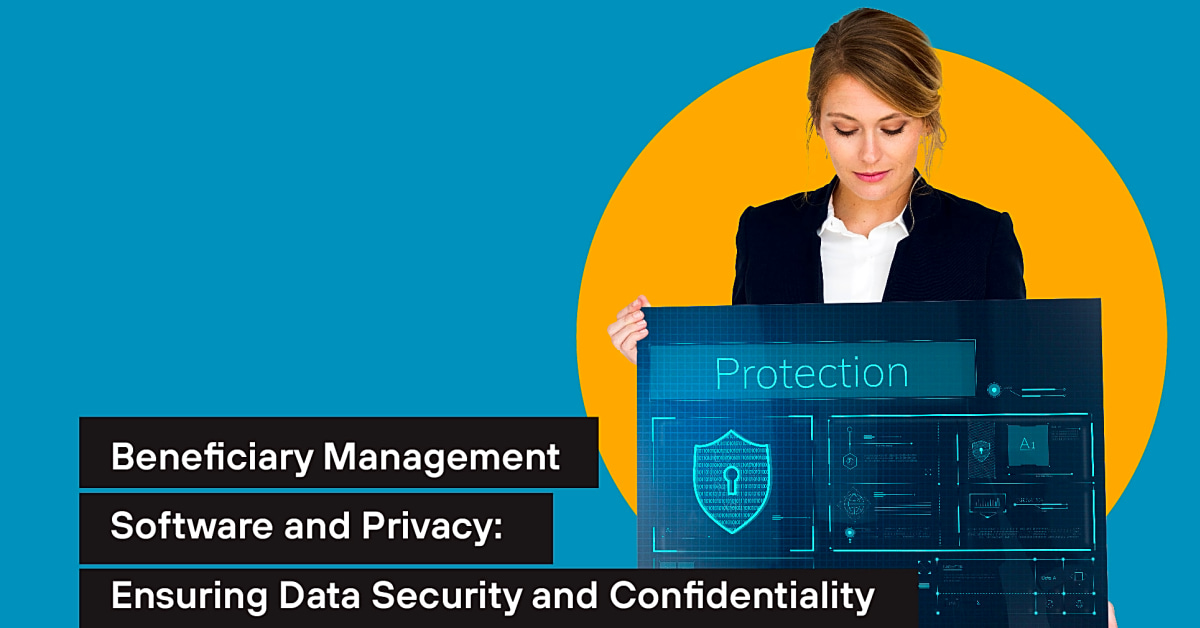In today’s digital age, data is one of the most valuable assets for any organization. It holds sensitive information about customers, employees, and operations that must be protected at all costs. With the rise of cyber attacks and data breaches, ensuring data security and confidentiality has become a top priority for businesses. In this article, we will discuss the importance of data security and confidentiality and explore different measures that organizations can take to safeguard their valuable data. From implementing strict security protocols to educating employees on best practices, we will cover various aspects of information management to help you ensure the safety and confidentiality of your organization’s data. So, whether you are a small business owner or a CEO of a large corporation, read on to learn how you can strengthen your organizational skills and protect your data from potential threats.
Data security and confidentiality are crucial aspects of business management. In today’s digital age, where data breaches and cyber attacks are becoming increasingly common, it is essential for businesses to have strong measures in place to protect their sensitive information. Not only does this ensure the safety of your business, but it also builds trust with your customers and stakeholders.
First and foremost, it is important to have a comprehensive data security policy in place. This includes setting up firewalls, encryption methods, and access controls to protect your data from unauthorized access. It is also important to regularly update your software and systems to patch any vulnerabilities that may arise.
Another crucial aspect of data security is employee training. Your employees should be aware of the risks associated with handling sensitive data and should be trained on how to safeguard it. This includes using strong passwords, being cautious of phishing emails, and knowing how to properly handle and dispose of confidential information.
In addition, it is important to implement a system for regular backups of your data. This ensures that even if there is a security breach, you have a backup of your important information. Consider using cloud storage or an external hard drive for backups.
When it comes to communication and collaboration within your team, it is important to use secure channels. This could include using encrypted messaging apps or secure file sharing platforms. Be cautious of sharing sensitive information over unsecured networks or through personal email accounts.
In terms of physical security, make sure that your office space is secure and that only authorized personnel have access to sensitive areas where data is stored. This could include using key cards or biometric scanners for entry.
Lastly, it is important to have a plan in place in case of a data breach or cyber attack. This could include having a designated team to handle the situation, notifying affected parties, and implementing measures to prevent future attacks.
Overall, by having a comprehensive data security and confidentiality plan in place, regularly training employees, and staying updated on the latest security measures, you can safeguard your business data and protect your company’s reputation.
Implementing Strong Data Security Measures
Data security is a top priority for any business, and implementing strong measures to protect sensitive information is crucial. In this section, we will cover the key areas that businesses should focus on when it comes to data security and confidentiality. These include:
- Encryption: Encrypting data is one of the most effective ways to ensure its confidentiality. This involves using algorithms to convert plain text into code that can only be accessed with a decryption key.
- Access control: Limiting access to sensitive data is essential in preventing unauthorized access. Businesses should have strict policies in place for who can access certain information and how it can be accessed.
- Regular backups: Data backups are crucial in case of a security breach or system failure. By regularly backing up data, businesses can ensure that their information is not lost or compromised.
- Employee training: Human error is one of the leading causes of data breaches. It is important for businesses to educate their employees on data security best practices to minimize the risk of accidental breaches.
By covering these areas, businesses can significantly strengthen their data security measures and minimize the risk of data breaches.
Employee Training for Data Security
Data security and confidentiality are critical components of business management. However, even with strong measures in place, human error is often the main cause of data breaches and cyber attacks. This is why employee training is crucial for safeguarding sensitive information.
First and foremost, it is important to educate employees on the importance of data security and confidentiality. They should understand the potential consequences of a breach, not just for the business but also for their own personal information. This will help instill a sense of responsibility and accountability in handling sensitive data.
Another tip for safeguarding sensitive information is to have clear and comprehensive policies in place. These policies should outline the proper handling and protection of sensitive data, as well as consequences for non-compliance. Regular training sessions should be conducted to ensure that employees are aware of these policies and any updates.
In addition to policies, it is important to provide employees with the necessary tools and resources to keep data secure. This can include training on how to identify and avoid phishing scams, proper password management, and encryption techniques. It is also crucial to regularly update and patch software to prevent vulnerabilities.
Lastly, regular testing and audits should be conducted to assess the effectiveness of employee training and identify any potential weaknesses in the system. This will help ensure that data security measures are continuously improving and adapting to new threats.
Preparing for a Data Breach or Cyber Attack
Data security and confidentiality are crucial aspects of business management. In today’s digital age, where data breaches and cyber attacks are becoming increasingly common, it is important for businesses to be prepared for the worst-case scenario.
Creating a contingency plan is an essential step in ensuring data security and confidentiality. This plan should outline the necessary steps to be taken in the event of a data breach or cyber attack. It should include procedures for notifying stakeholders, assessing the extent of the breach, and implementing measures to mitigate any further damage.
One key aspect of a contingency plan is having a designated team or person responsible for handling the response to a data breach or cyber attack. This individual should have the necessary expertise and authority to make quick and informed decisions.
Another crucial element of a contingency plan is regular testing and updating. As technology evolves and new threats emerge, it is important to regularly review and update the plan to ensure it remains effective.
By having a well-developed contingency plan in place, businesses can minimize the impact of a data breach or cyber attack and protect their sensitive information. This not only helps to safeguard the business but also maintains trust with customers and stakeholders.
Physical Security Measures
In addition to safeguarding your digital data, it is crucial to ensure the safety of your office space. Physical security measures can help prevent unauthorized access to sensitive information and protect your business from physical threats such as theft and vandalism.
One of the most important physical security measures is controlling access to your office. This can be done through key card systems, security guards, or even biometric scanners. By limiting who can enter your office, you reduce the risk of unauthorized individuals gaining access to your sensitive data.
Another key aspect of physical security is securing your equipment and devices. This includes locking up laptops, encrypting hard drives, and implementing tracking software for mobile devices. In the event that a device is lost or stolen, these measures can help prevent sensitive data from falling into the wrong hands.
Regularly backing up your data and storing it in a secure off-site location is another important physical security measure. This ensures that in case of a physical disaster such as a fire or flood, your data remains safe and accessible.
Finally, it is important to have proper disposal procedures in place for any physical documents or devices that contain sensitive information. Shredding documents and wiping hard drives before disposing of them can help prevent data from being retrieved by unauthorized individuals.
Regular Backups and Secure Communication
Regular backups and secure communication are two essential practices for ensuring data security and confidentiality in your business. Let’s dive into why these practices are crucial and how you can implement them effectively.
Why Regular Backups are Important
Regular backups of your business data are crucial for several reasons. First, it ensures that you always have a copy of your important information in case of any data loss or corruption. This could be due to hardware failures, software malfunctions, or even human error. Without regular backups, you risk losing critical data that could impact your business operations.
In addition, regular backups also protect your business from ransomware attacks. Ransomware is a type of malicious software that encrypts your data and demands a ransom to restore access. By having regular backups, you can restore your data without paying the ransom, avoiding potential financial losses.
How to Implement Regular Backups
The best way to ensure regular backups is to automate the process. This could be through cloud-based backup services or using external hard drives or servers. It’s important to set a schedule for backups that works for your business and to regularly test the backups to ensure they are working correctly.
The Importance of Secure Communication
In today’s digital age, communication happens mainly through electronic means. This makes it vulnerable to interception by hackers or other malicious actors. This is why secure communication is crucial for protecting business data.
Secure communication involves encrypting sensitive information before sending it over the internet. This ensures that even if someone intercepts the communication, they won’t be able to access the data without the encryption key.
Tips for Secure Communication
To ensure secure communication, you can use tools such as virtual private networks (VPNs), secure email services, and encrypted messaging apps. It’s also essential to educate your employees on the importance of secure communication and how to identify potential security threats.
In Conclusion
Regular backups and secure communication are two crucial practices for protecting business data. By implementing these best practices, you can ensure the safety and confidentiality of your sensitive information, building trust with your customers and stakeholders.
Data security and confidentiality should be a top priority for any business. By following these tips and implementing strong measures, you can protect your sensitive information and maintain trust with your stakeholders. Stay updated on the latest security measures and regularly review and update your policies to ensure the safety of your business data.






